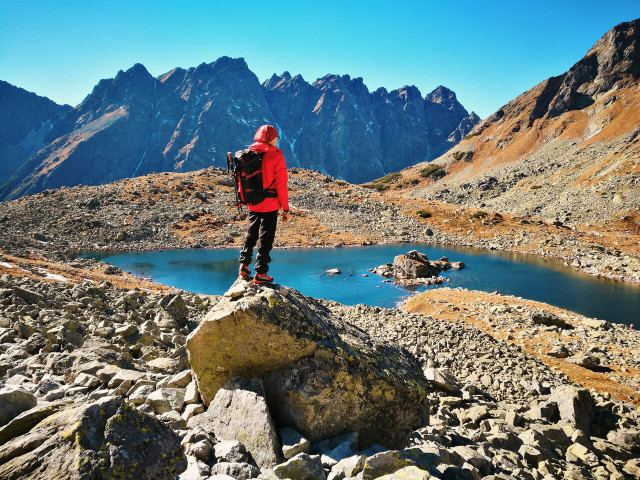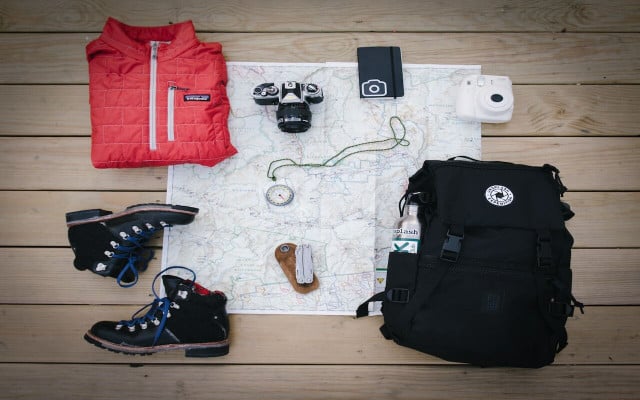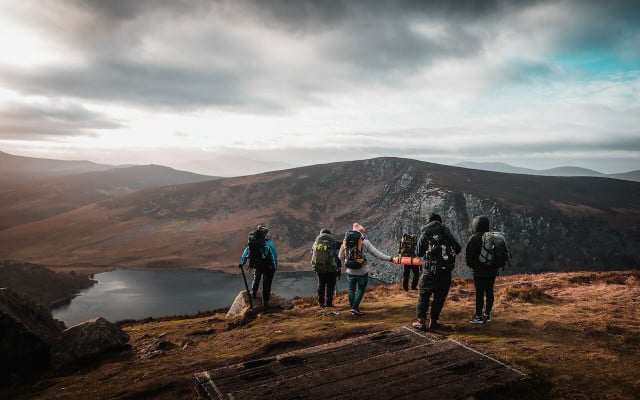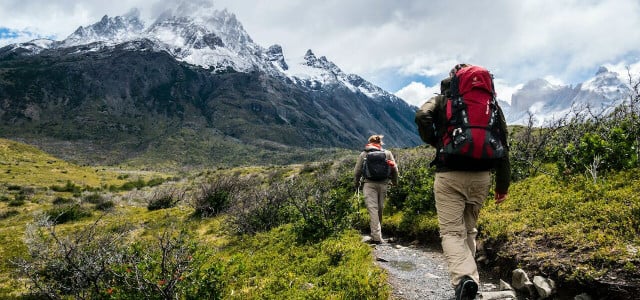Choosing between hiking vs. trekking can be a difficult decision. Both are great forms of exercise, but how do you tell which one is right for you?
Hiking vs trekking: aren’t they the same thing? While these terms are often used interchangeably, there are some significant differences. It’s often said that all trekkers can go hiking, but not all hikers can go trekking — why is that? A closer look at trekking vs hiking will give you a better understanding of the skills and equipment needed for both so you can determine which is right for you.
Hiking vs. Trekking: What’s the Difference?

It can be hard to understand the difference between hiking vs. trekking, as they are often used interchangeably. The reason is that there is a lot of overlap and similarities. Hiking is also called tramping in New Zealand or bush-walking in Australia. Trekking also goes by the term backpacking, although this shouldn’t be confused with the style of hostel-hopping travel popular in Europe and South-East Asia.
Hiking
Hiking tends to refer to shorter trips that are on marked trails or footpaths which are specifically cleared for hiking or have been worn down by hikers over time. Hikes are long, brisk walks often done as day trips, although multi-day hikes also exist, typically with a designated base for overnights.
Potential downsides: Hiking trails can sometimes be overcrowded depending on their location and might only scratch the surface of the beautiful surrounding nature.
Trekking
Trekking differs from hiking in that it often occurs in areas of untamed nature. This generally involves harsher weather conditions due to high-altitude locations, exposed fields or even dense forests. Trekking trips are longer than hiking trips, and most involve camping every night and walking all day, stopping only once you’ve reached your destination for the night.
Potential downsides: Trekking can take a huge toll on your body, and the risk of altitude sickness is real.
Bringing the Right Equipment



Where these outdoor adventures have a lot of overlap is in the necessary equipment. Whether you’re hiking or trekking, having the right footwear is key. For short and easy day hikes, you can probably get away with a pair of running shoes, but for longer hikes and treks, having a sturdy pair of hiking boots is essential. For both activities, you’ll need to bring the following items:
- Water
- Sunscreen
- Compass
- Hiking snacks
- Survival and/or first aid kit
- Extra layers of clothing
If you’re just doing a day hike, you don’t really need to pack anything else. For overnight hikes and treks, you’ll need to carry a larger backpack with you so you can fit items like a sleeping bag, tent, extra clothes, trekking poles, backpacking meals, and a flashlight. You may also want to explore our guides for backpacking in the rain and tenting in cold weather.
While it’s important to have everything you need, be sure not to overpack. Any non-essentials add extra weight that you’ll need to carry with you.
Trekking vs. Hiking: Which Is Right for You?



You may be considering hiking vs. trekking and which activity is the better option for you. If you’ve never tried anything like this, hiking is your best option. It’s something that anyone can try out — you can even hike with a baby. That said, you’ll still want to ease yourself into it and start with easier urban hikes — there are several walkable cities in the US that can help you get started.
You can work your way up to longer and more challenging hikes before making the move to overnight or multi-day hikes. Once you’re comfortable with that, see if you are interested in trekking. It isn’t for everyone, and it’s important to know your limits, but it can be incredibly rewarding and grant you access to more remote nature.
Looking for some hiking inspiration to get started? Check out some of our hiking guides:
- Best Hiking on the East Coast: 7 Amazing Trails
- 7 Don’t-Miss Hiking Trails in Big Bear
- The Best Hiking Near Chicago: 9 Top Trails
- 10 Outstanding Hiking Trails in Houston
- Hiking by the Beach: The 11 Most Beautiful US Coastal Hikes
- Hiking Near Dallas: 6 Great Walking Paths
- 10 Best Hikes Near NYC You Can Reach by Train
- These Are the 5 Best Hikes Near Las Vegas
- The 11 Most Epic Sequoia National Park Hikes
- 11 Jaw-Dropping Hikes in Canada
- 17 Easy Hikes in Vancouver
- The 10 Best Hikes in Southern California
- 14 Best Hikes in the Midwest for Wildlife, Flowers & Scenery
- 11 Best Hikes Near Nashville for Waterfalls, City Views & More
- 16 Best Hikes in Olympic National Park
Read more:
- 15 Healthy & Vegan Hiking Lunch Ideas
- 9 Yoga Alternatives for Mindful Exercise
- The 9 Best Trail Games for Family Hikes
Do you like this post?






